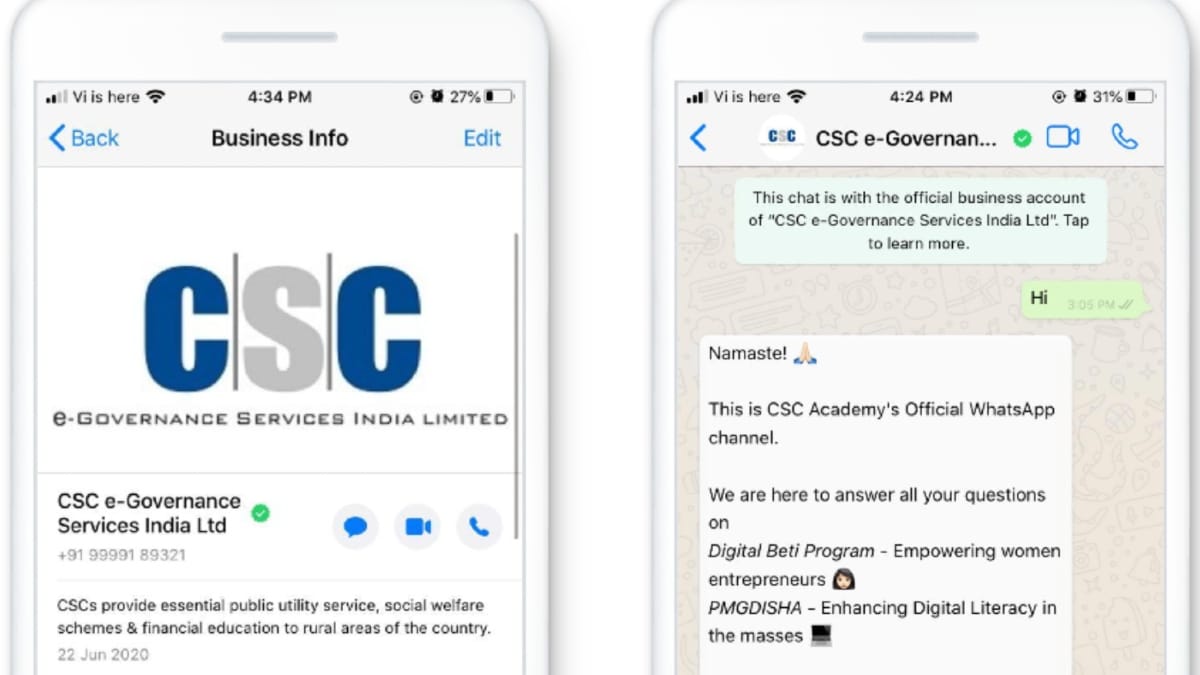
WhatsApp has teamed up with Common Services Centers (CSC) to launch a chatbot for citizens to receive digital literacy services and resources in the country. The aim of this initiative is to bridge the digital divide and spur rural entrepreneurship. Programmes such as the Pradhan Mantri Gramin Digital Saksharta Abhiyan (PMGDISHA) and the Digital Beti initiative will be available in English, Hindi, and seven other regional languages.
The partnership between Facebook-owned WhatsApp and CSC aims to empower rural communities by providing them with digital skills, and also create livelihood by promoting rural entrepreneurship. This is being done in light of the ongoing coronavirus pandemic that has disrupted education and skill development initiatives across the country.
People can send ‘Namaste’ to CSC Academy’s official WhatsApp account at 9999189321, in order to access details about course modules of flagship programmes like Digital Beti and PMGDISHA.
Shivnath Thukral, head of public policy, WhatsApp India, said that WhatsApp would continue to invest in partnerships to help entrepreneurs learn new digital skills for India to grow.
“We’re delighted to partner with CSC to support rural women entrepreneurs and help deliver on CSC’s goal of digital literacy,” Thukral said. “As more of our conversations move online during this period of physical distancing, WhatsApp is becoming a preferred platform for conversations between businesses and customers, governments and citizens, and so on.”
Over 500 unique users have accessed CSC’s WhatsApp chatbot and it is expected to be used by 10 million beneficiaries by August 2021, as per a press release. The Digital Beti initiative aims to train 5,000 rural entrepreneurs on digital literacy in over 3,000 villages across 10 Indian states, while the PMGDISHA initiative focuses on making at least 40 percent rural households digitally literate.
Dinesh Tyagi, CEO, CSC SPV, said in a statement that PMGDISHA was being implemented by CSCs across the country. “Due to the Coronavirus pandemic, training has been suspended across the country. The ability to deliver digital literacy modules through WhatsApp will help us in extension of the programme to those still unreached in rural as well as urban areas,” Tyagi said. “The partnership will redefine the delivery model of education and skill related content, especially for rural India.”
Should the government explain why Chinese apps were banned? We discussed this on Orbital, our weekly technology podcast, which you can subscribe to via Apple Podcasts, Google Podcasts, or RSS, download the episode, or just hit the play button below.




















